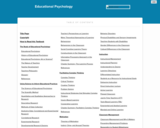
Textbook for Education Psychology course
- Subject:
- Education
- Psychology
- Social Science
- Material Type:
- Full Course
- Textbook
- Author:
- Nicole Arduini-van Hoose
- Date Added:
- 02/25/2021

Psychology | Counseling

Textbook for Education Psychology course

This text represents the collaboration of more than 70 authors from multiple countries. Essentials of Exercise and Sport Psychology: An Open Access Textbook brings this diverse set of experts together to provide a free, open, accessible textbook for students studying exercise and sport psychology. Primarily directed at undergraduate students, this well-referenced book is also appropriate for graduate students.
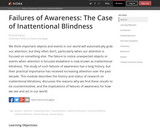
We think important objects and events in our world will automatically grab our attention, but they often don’t, particularly when our attention is focused on something else. The failure to notice unexpected objects or events when attention is focused elsewhere is now known as inattentional blindness. The study of such failures of awareness has a long history, but their practical importance has received increasing attention over the past decade. This module describes the history and status of research on inattentional blindness, discusses the reasons why we find these results to be counterintuitive, and the implications of failures of awareness for how we see and act in our world.
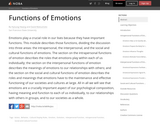
Emotions play a crucial role in our lives because they have important functions. This module describes those functions, dividing the discussion into three areas: the intrapersonal, the interpersonal, and the social and cultural functions of emotions. The section on the intrapersonal functions of emotion describes the roles that emotions play within each of us individually; the section on the interpersonal functions of emotion describes the meanings of emotions to our relationships with others; and the section on the social and cultural functions of emotion describes the roles and meanings that emotions have to the maintenance and effective functioning of our societies and cultures at large. All in all we will see that emotions are a crucially important aspect of our psychological composition, having meaning and function to each of us individually, to our relationships with others in groups, and to our societies as a whole.
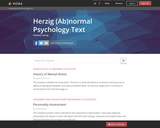
Open textbook on abnormal psychology. Includes sections on personality disorders, mood disorders, anxiety, schizophrenia, psychopathy, behavioral disorders, autism and disassociative disorders.
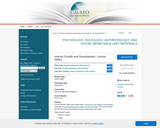
This set of lecture slides was created under a Round Four ALG Textbook Transformation Grant with an accompanying question library for tests and quizzes. The course uses the free and open Human Development sections of Boundless Psychology. Topics covered include:
Nature vs. Nurture
Piaget
Attachment
Freud
Erikson
Kohlberg
Childhood Development
Adolescent Development
Adulthood Development
Late Adulthood
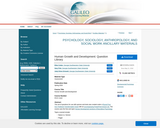
This set of questions for use with quizzes and tests was created under a Round Four ALG Textbook Transformation Grant with an accompanying PowerPoint lecture set. The course uses the free and open Human Development sections of Boundless Psychology. Topics covered include:
Nature vs. Nurture
Piaget
Attachment
Freud
Erikson
Kohlberg
Childhood Development
Adolescent Development
Adulthood Development
Late Adulthood
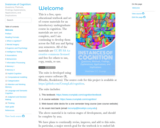
This is a free, open-educational textbook and set of course materials for an introductory undergraduate course in cognition.
The suite is developed using open-source software (R, RStudio, Bookdown). The source code for this project is available at https://github.com/CrumpLab/cognition.
The suite includes:
This textbook: https://www.crumplab.com/cognition/textbook
A course website: https://www.crumplab.com/cognition/
Web-based slide decks for a one semester long course (see course website)
An exam test bank (email mcrump@brooklyn.cuny.edu)
We have plans to continually revise, improve, and add to this suite. In particular, a major stretch goal for the textbook is to embed lab activities in the form of web-based experiment demonstrations, and data-analysis demonstrations. Another goal is to develop tutorials showing others how to copy, use, and/or collaborate on content development.
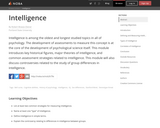
Intelligence is among the oldest and longest studied topics in all of psychology. The development of assessments to measure this concept is at the core of the development of psychological science itself. This module introduces key historical figures, major theories of intelligence, and common assessment strategies related to intelligence. This module will also discuss controversies related to the study of group differences in intelligence.
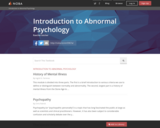
Abnormal Psychology textbook created with the NOBA Project.
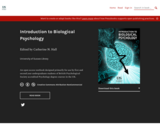
Edited by Catherine N. Hall
Short Description:
An open access textbook designed primarily for use by first and second year undergraduate students of British Psychological Society accredited Psychology degree courses in the UK.
Word Count: 124160
ISBN: 9781739214807
(Note: This resource's metadata has been created automatically by reformatting and/or combining the information that the author initially provided as part of a bulk import process.)

Becoming an Agent of Change
Short Description:
This textbook will show you how to comprehensively analyze, investigate, and address escalating problems of economic inequality, violence, substance abuse, homelessness, poverty, and racism. It will provide you with perspectives and tools to partner with community members and organizations to promote a fair and equitable allocation of resources and opportunities. Please email us at openaccesscptextbook@gmail.com with any feedback or to request downloadable versions of the chapter lecture slides and quizzes for instructor use.
Word Count: 110951
(Note: This resource's metadata has been created automatically by reformatting and/or combining the information that the author initially provided as part of a bulk import process.)
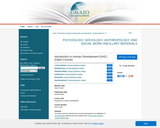
This open course for Introduction to Human Development is an adaptation of PsychologyWiki materials and was created under a Round Nine Textbook Transformation Grant.
Authors' Description:
In our transformation of PSYC 2103 Human Development we decided to divide the content into three units.
Unit 1: Overview, History and Biological Beginnings
Unit 2: Early Childhood to Adolescence
Unit 3: Young Adulthood to Death
Each unit includes:
Learning objectives
Things to consider: questions students should be thinking about while engaging with the content
PowerPoint Presentation
Readings from a variety of open text books
Activities
Supplemental readings and videos
If you have questions or would like access to the question/test bank please contact either
Elizabeth Dose, edose@highlands.edu
Katie Bridges, kbridges@highlands.edu
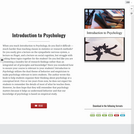
When you teach Introduction to Psychology, do you find it difficult — much harder than teaching classes in statistics or research methods? Do you easily give a lecture on the sympathetic nervous system, a lecture on Piaget, and a lecture on social cognition, but struggle with linking these topics together for the student? Do you feel like you are presenting a laundry list of research findings rather than an integrated set of principles and knowledge? Have you wondered how to ensure your course is relevant to your students? Introduction to Psychology utilizes the dual theme of behavior and empiricism to make psychology relevant to intro students. The author wrote this book to help students organize their thinking about psychology at a conceptual level. Five or ten years from now, he does not expect his students to remember the details of most of what he teaches them. However, he does hope that they will remember that psychology matters because it helps us understand behavior and that our knowledge of psychology is based on empirical study.
This is a derivative of INTRODUCTION TO PSYCHOLOGY by a publisher who has requested that they and the original author not receive attribution, which was originally released and is used under CC BY-NC-SA. This work, unless otherwise expressly stated, is licensed under a Creative Commons Attribution-NonCommercial-ShareAlike 4.0 International License.
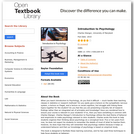
When you teach Introduction to Psychology, do you find it difficult – much harder than teaching classes in statistics or research methods? Do you easily give a lecture on the sympathetic nervous system, a lecture on Piaget, and a lecture on social cognition, but struggle with linking these topics together for the student? Do you feel like you are presenting a laundry list of research findings rather than an integrated set of principles and knowledge? Have you wondered how to ensure your course is relevant to your students? If so, then you have something in common with Charles Stangor.Charles Stangor's Introduction to Psychology utilizes the dual theme of behavior and empiricism to make psychology relevant to intro students.Charles wrote this book to help students organize their thinking about psychology at a conceptual level. Five or ten years from now, he does not expect his students to remember the details of most of what he teaches them. However, he does hope that they will remember that psychology matters because it helps us understand behavior and that our knowledge of psychology is based on empirical study.This book is designed to facilitate these learning outcomes, and he has used three techniques to help focus students on behavior:Chapter Openers: Each chapter opens showcasing an interesting real world example of people who dealing with behavioral questions and who can use psychology to help them answer them. The opener is designed to draw the student into the chapter and create an interesting in learning about the topic.Psychology in Everyday Life: Each chapter contains one or two features designed to link the principles from the chapter to real-world applications in business, environment, health, law, learning, and other relevant domains. For instance, the application in Chapter 7 on Development, “What makes good parents” applies the concepts of parenting styles in a mini-handbook about parenting, and the application in Chapter 3 is about the difficulties that left-handed people face performing everyday tasks in a right-handed world.Research Foci: Introduction to Psychology emphasizes empiricism throughout, but without making it a distraction from the main story line. Each chapter presents two close-ups on research -- well articulated and specific examples of research within the content area, each including a summary of the hypotheses, methods, results, and interpretations. This feature provides a continuous thread that reminds students of the importance of empirical research. The research foci also emphasize the fact that findings are not always predictable ahead of time (dispelling the myth of hindsight bias), and also help students understand how research really works.Charles Stangor's focus on behavior and empiricism has produced, Introduction to Psychology, a text that is better organized, has fewer chapters, and is somewhat shorter than many of the leading books.
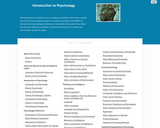
Comprehensive coverage of core concepts grounded in both classic studies and current and emerging research, including coverage of the DSM-5 in discussions of psychological disorders. Incorporates discussions that reflect the diversity within the discipline, as well as the diversity of cultures and communities across the globe.
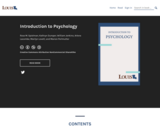
A comprehensive review of the behavior or humans as well as other animals will be provided through each chapter. Topics such as learning, memory, emotions, behavioral disorders, and personality will be explored.
Section I: Introduction to Psychology
Section II: The Science of Psychology
Section III: Physiological Aspects of Psychology
Section IV: States of Consciousness
Section V: Sensation and Perception
Section VI: Growth and Development
Section VII: Learning
Section VIII: Thinking and Intelligence
Section IX: Memory
Section X: Emotion and Motivation
Section XI: Personality
Section XII: Social Psychology
Section XIII: Psychological Disorders
Section XIV: Treatment of Psychological Disorders
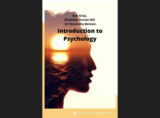
1st Ed.
Word Count: 282156
(Note: This resource's metadata has been created automatically by reformatting and/or combining the information that the author initially provided as part of a bulk import process.)
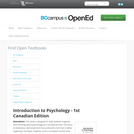
This book is designed to help students organize their thinking about psychology at a conceptual level. The focus on behaviour and empiricism has produced a text that is better organized, has fewer chapters, and is somewhat shorter than many of the leading books. The beginning of each section includes learning objectives; throughout the body of each section are key terms in bold followed by their definitions in italics; key takeaways, and exercises and critical thinking activities end each section.
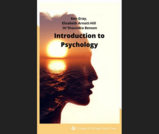
Word Count: 287060
(Note: This resource's metadata has been created automatically by reformatting and/or combining the information that the author initially provided as part of a bulk import process.)